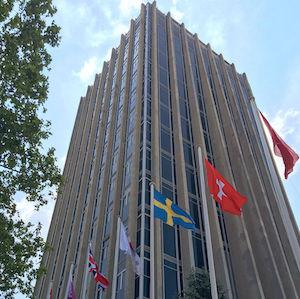The first director of IARC (the International Agency for Research on Cancer), Dr. John Higginson, was also a scientific advisor to the American Council on Science and Health Those were the glory days of IARC, which was founded for the purpose of identifying human carcinogens for further study and to guide health policy.
Unfortunately, much has changed since 1965. Fifty-two years after its inception, IARC has become a fringe group, seemingly more interested in scaring people than identifying actual health threats. Any organization that declares bacon to be as dangerous as plutonium has entirely lost its way.
Things started to unravel for IARC over a popular herbicide called glyphosate, which it considers a "probable human carcinogen." Every major science and regulatory body disagrees, including the U.S. EPA and the European Food Safety Authority (EFSA). Even the World Health Organization, which is the parent of IARC, believes that glyphosate doesn't cause cancer. What is going on?
We now have an answer. Thanks largely to the investigative work of David Zaruk on Science 2.0, The Times reports that Christopher Portier, a key IARC advisor who lobbied to have glyphosate listed as a carcinogen, accepted $160,000 from trial lawyers representing cancer patients who stood to profit handsomely by suing glyphosate manufacturers. Mr. Portier's failure to disclose such an obvious conflict of interest has exploded into a textbook case of scientific fraud.
Glyphosate-gate: A Case of Scientific Fraud
It gets worse. Reuters reports that evidence that glyphosate was harmless was intentionally edited out of an IARC monograph. The monograph also distorted other studies it cited, for instance, by concluding that the research found a link between glyphosate and cancer when the opposite was true. Furthermore, Reuters writes that "the agency won't say who made the changes or why." Sixteen scientists contacted by Reuters refused to answer any questions about the edits. That's not how science operates; that's how Fight Club operates.
Truly, it is difficult to overstate the seriousness of what IARC and Mr. Portier have done. As Dr. Zaruk writes for his Risk-Monger site, such behavior undermines not only the World Health Organization but the scientific enterprise itself. How can people trust health advice when the regulators who dispense it can be bought off by trial lawyers?
Sometimes, Money Matters
At ACSH, we believe that good science is good regardless of who pays for it -- be it academia, the government, non-profits, or industry. Scientific research must be judged on its merits alone. That's why people who cry, "Corporate shill!" are little more than conspiracy theorists.
However, bad science is another issue entirely. The vast majority of the time, bad science is promulgated by researchers or journalists who aren't good at their jobs or don't know any better. Occasionally, bad science is promoted by people who are being bought off. This is one of those times.
IARC has severely and perhaps irreparably damaged the reputation of the World Health Organization. Besides, given the sheer number of regulatory bureaucrats who already exist in the U.S., Europe, and elsewhere, IARC's role is redundant and only serves to add confusion rather than clarity.
It ought to be defunded and disbanded and we are recommending the U.S. government do just that.




